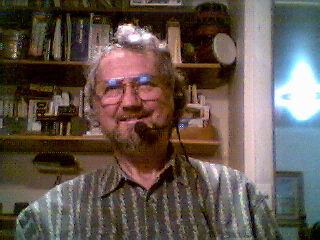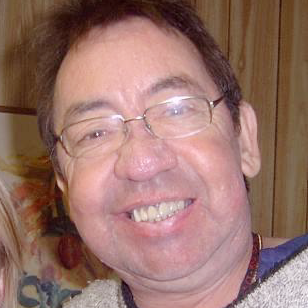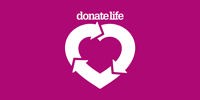
Several Years On
Hi, I am Owen Brown and I had a double lung transplant in May 2002. I have told much of my pre transplant and immediate post transplant story before, thus I won't bore people by repeating aspects of that extended saga.
I will raise a few issues that have arisen since the event. They are not designed to put anyone off having a transplant but just to fill in some gaps that the literature forgets about.
1. The first one is that all the literature does not tell you everything, nor are you in any fit state to be alert to all possible pitfalls and ask relevant questions if you are going downhill and diagnosed with a need for a major organ transplant, but do ask lots of questions.
* What sort of medication will you have to be on? Is a likely question. The answer can be anything from one tablet a day to 64 tablets per day as was my case.
* Do not take it as anywhere near sensible truth when one of the nurses tells you "at least you will get off all those puffers and tablets".
* Every variation of illness (cystic fibrosis, A1 anti-trypsin deficiency, or emphysema etc) will require different treatment, so don't listen to a patient who has vastly different problems to yours.
* Get onto the Internet and do your research and make contacts all round the world and--
* Most importantly find a mentor.
2. Be prepared for setbacks - but don't panic. Twice I ended up back in hospital being re-opened to fix infections in the wound area. During the initial major operation, I was resigned to success (life) or failure (death). However, when it came to going back into hospital to have the most virulent form of infection treated and being told, "If 'x' medication does not work there is nothing left in the world that can save you," I was not very calm. It happens.
3. Necessary/Compulsory visits to hospital post discharge amount to about 3-4 times per week for about 6 months. This can get you down and can also be a huge burden on friends and family. It is part of the process. You don't get certified as fit to drive a car for about this period of time. Travel costs are a factor.
4. For some, the expense of post transplant medications can be astronomical - on 64 tablets per day, the cost was in the order 20 x $20 (now $37) per month ($400 per month). I was fortunate to have work cover paying for some of this.
5. Don't expect to be as healthy as a 40 year old guy if you have the op when you are 55. But do work at getting as fit as possible to make the best use of your new life.
6. Expect 101 complications from medicine side effects and the physical trauma of the operation itself. From aches and pains to neuropathy of the feet to severe migraines to nausea to cancers to impaired vision. (see below for others).
7. Question whether the frequent (early on) bronchoscopes are worth the risk. Yes early on but may be no after a few years.
It is my opinion that the cut off mark as to whether it was all worth it, is around the 3-4 year mark. For the first year you are still weak. The second year can still succumb to complications that can put you back in hospital. I drove 600km to Merimbula (and back) in my 2nd year and had no reaction. But beware, you think you can do more than you really should. I had an overseas trip in 2004 (2+1/2 years after my op) which made it a cause-celebre) and really gave me the excitement in my life I needed to make some big decisions. Now 7 years later, I find I am hitting walls - arthritis limiting my drawing and my drumming, the side effects of medication wasting my leg/arm muscles whilst at the same time dumping my body fat on my tummy.
Remember though, not withstanding all that above, I am extremely pleased to be alive. I was there for my son when he finished year 9 at Secondary college, I was able to help him with his schooling and saw him graduate year 12. I have seen him get his driver's license and gain confidence with girls. I play drums in a band, I paint and enter art shows, and I can do some work (holding down a 5 day a week job on a permanent basis is out but I can do 3 days a week). Finance is a bit of a problem as my super disappeared during 9/11 and subsequently needed to seek part time employ to pay bills. Health prospects are all downhill, but then so is everyone in the world after the age of around 30-40.
Best of luck to all who need/contemplate an organ transplant.
Regards
Owen Brown
Blackburn Victoria




